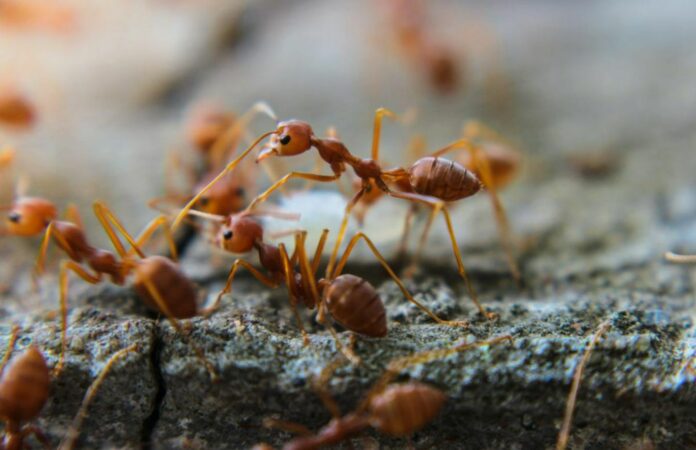In several creatures, ants being a prime example, the blood-brain barrier (BBB) maintains consistent brain activities by managing substances entering and exiting the brain.
Recent findings from a study published in the journal Cell reveal a pivotal role of the BBB in carpenter ants: it actively shapes behaviors vital to the colony’s operation through a specific enzyme that breaks down hormones.
“In these ants, the BBB produces a special version of the enzyme Juvenile hormone esterase (Jhe), which degrades Juvenile Hormone (JH3),” adds Karl Glastad, co-authoring the study with Linyang Ju under the guidance of senior researcher Shelley Berger at the University of Pennsylvania’s Perelman School of Medicine.
While the common function of Jhe enzymes is to be released into the hemolymph (akin to insect blood), this ant-specific variant remains within the BBB cells. Here, it regulates the quantity of JH3 hormone that makes its way to the worker ant’s brain, explains Ju.
The hormone JH3 has a direct role in stimulating social insect workers to forage. Within a colony, various worker ants take on distinct roles. The differences in their roles emerge partly from varying enzyme levels in their BBB, leading to altered JH3 hormone levels in their brains.
The discovery highlights the profound impact a single protein, when located precisely, can have on the intricate behaviors forming complex communities, according to the team. And the implications go beyond ants; early findings hint at similar processes influencing mouse behavior.
To uncover this, the team employed single-cell RNA sequencing to discern gene activity variances in the brains of two ant behavioral groups: the foragers and the soldiers. Their work identified the Jhe gene, responsible for degrading the JH3 hormone, exclusively in BBB cells. There were also notable disparities between the BBB cells in foragers and soldiers, prompting further exploration into its behavioral implications.
Experiments demonstrated that intentional adjustments of the Jhe enzyme’s levels can alter the brain’s functionality, thereby switching soldier ants to foraging behaviors. Similar observations were made in fruit flies when the fly BBB was made to produce the ant variant of the Jhe enzyme.
“Differences in expression of this single enzyme [Jhe] between the BBB of different castes control the hugely important decision to forage or to stay inside the nest for defense as soldiers and can even reprogram flies to change food-seeking behavior,” Glastad points out.
Extending their research, the team looked into previously released data on mouse endothelial cells, especially those from the mouse BBB. Their analysis found that mouse BBB cells had a pronounced expression of numerous hormone-degrading enzymes compared to other cell types, including those breaking down testosterone.
Berger concludes, “This suggests that gating hormone entry into the brain by the BBB is a function extending well beyond ants and that gating a hormone differentially between behavioral conditions as seen in ants may exist in other organisms, including mammals.”
The team’s future endeavors will delve deeper into the genesis and widespread nature of this mechanism and its potential existence beyond ants.
Source: 10.1016/j.cell.2023.08.002
Image Credit: Shutterstock
